Introduction
Who doesn’t want glowing, healthy skin? In today’s world, skincare has become a priority, but with so many synthetic products on the market, natural solutions are often overlooked. Natural skincare tips are your gateway to radiant skin without the risks of harmful chemicals. This guide is designed to help you embrace simple, effective, and natural methods for healthy skin. Ready to dive in?
Table of Contents
1. Why Choose Natural Skincare?
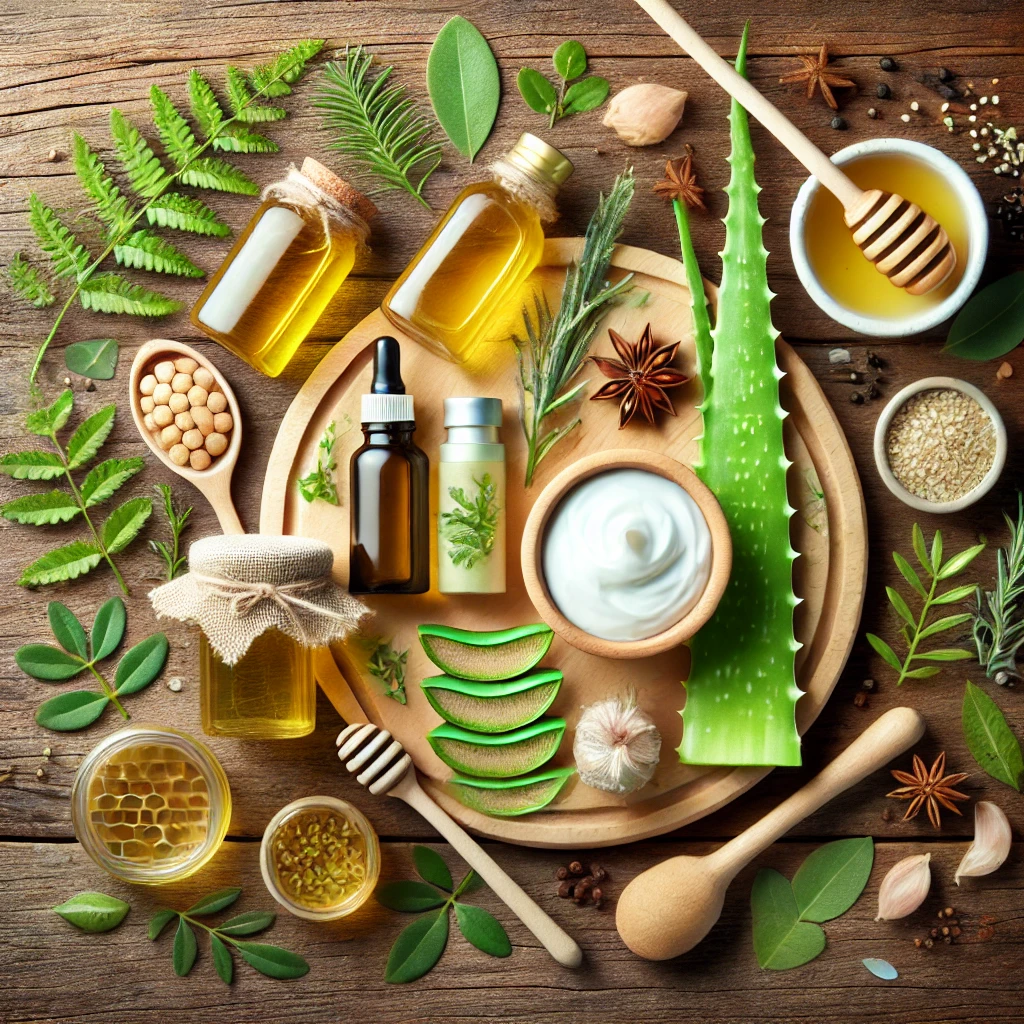
When you think about skincare, it’s essential to ask: What are you putting on your skin? Many commercial products contain synthetic chemicals that can harm your skin in the long run, causing irritation, allergies, or even more severe issues. Natural skincare, on the other hand, relies on ingredients derived from nature—think plant oils, herbal extracts, and minerals. These are not only gentle but also effective.
Choosing natural skincare is like choosing a diet rich in whole, unprocessed foods—it nourishes your skin from the outside without toxic additives. Plus, natural options are often more sustainable and environmentally friendly, reducing the overall chemical burden on the planet.
2. Know Your Skin Type
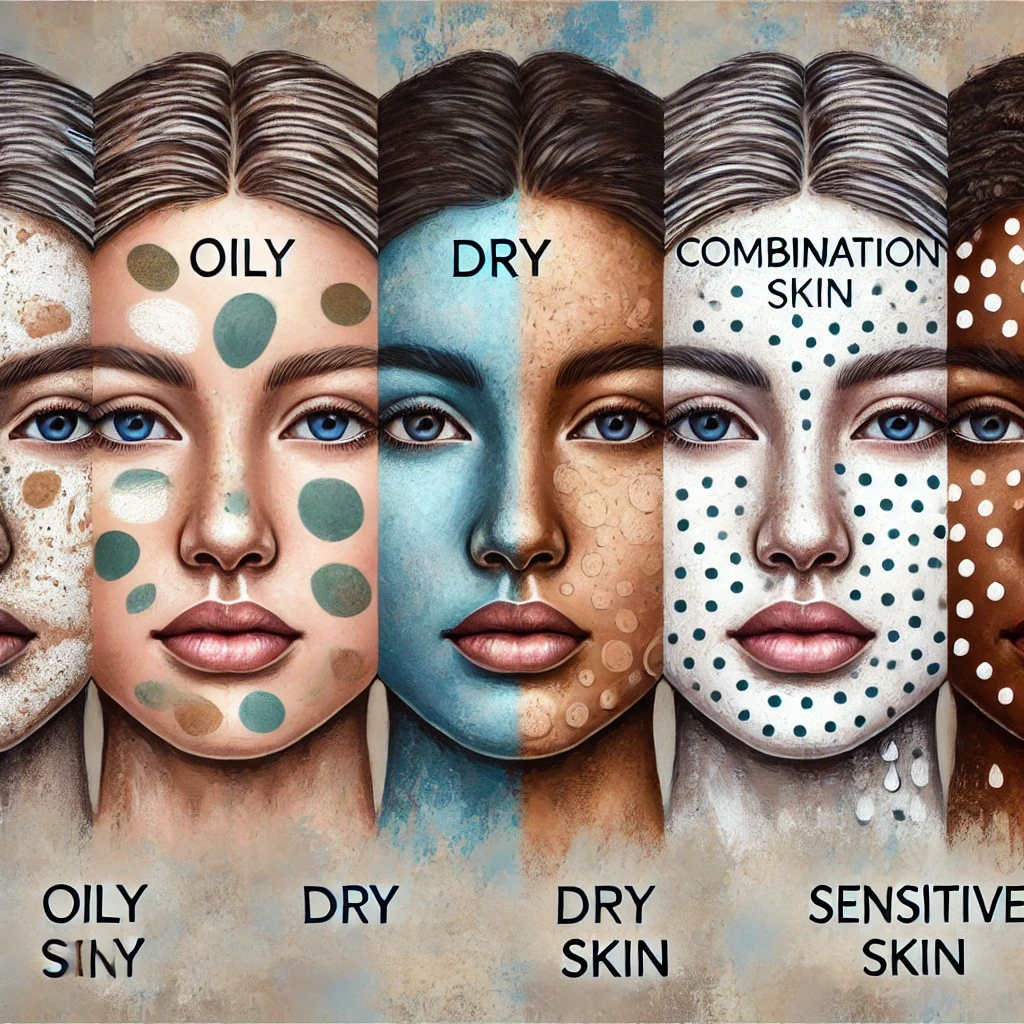
Before diving into natural skincare routines, identifying your skin type is essential. This step ensures you select ingredients that complement and improve your skin rather than aggravate it.
- Oily Skin: Often characterized by a shiny appearance and enlarged pores, oily skin benefits from ingredients that balance sebum production, like tea tree oil or clay.
- Dry Skin: If your skin feels tight and flaky, it likely craves hydration. Ingredients like aloe vera, shea butter, and coconut oil can provide intense moisture.
- Combination Skin: A mix of oily and dry areas requires a balanced approach. Focus on lightweight hydration for the dry zones and gentle oil control for the T-zone.
- Sensitive Skin: Prone to redness and irritation, sensitive skin needs soothing ingredients like oatmeal, chamomile, and calendula.
Understanding your skin type is like knowing your skin’s personality—it helps you build a routine that works harmoniously.
3. Importance of Hydration
Hydration is a non-negotiable step in any skincare routine. Why? Your skin is made up of cells that need water to function properly. Dehydrated skin often appears dull, flaky, and prone to premature aging.

Drinking plenty of water daily is the first step to staying hydrated, but your skin also benefits from topical hydration. Ingredients like hyaluronic acid (a natural compound) or aloe vera gel can lock in moisture and keep your skin plump and healthy.
For an added boost, try a refreshing DIY mist: Combine rose water and cucumber juice in a spray bottle and spritz it throughout the day. Your skin will feel revitalized in no time.
4. The Role of Diet in Skincare
Your skin reflects what’s happening inside your body. Ever heard the phrase, “You are what you eat”? It couldn’t be more true for skincare. A nutrient-rich diet promotes clear, glowing skin, while poor food choices often lead to dullness or breakouts.
- Vitamins and Minerals: Foods rich in vitamins A (carrots, spinach), C (citrus fruits, bell peppers), and E (nuts, seeds) protect and repair skin.
- Healthy Fats: Omega-3 fatty acids in fish, walnuts, and flaxseeds help maintain your skin’s elasticity and moisture.
- Antioxidants: Green tea, dark chocolate, and berries combat free radicals that age your skin.
Think of your diet as your internal skincare routine. A healthy balance of nutrients nourishes your skin from within.

5. DIY Face Masks for Every Skin
One of the joys of natural skincare is creating your own treatments at home. DIY face masks are a fun, cost-effective way to pamper your skin with wholesome ingredients.
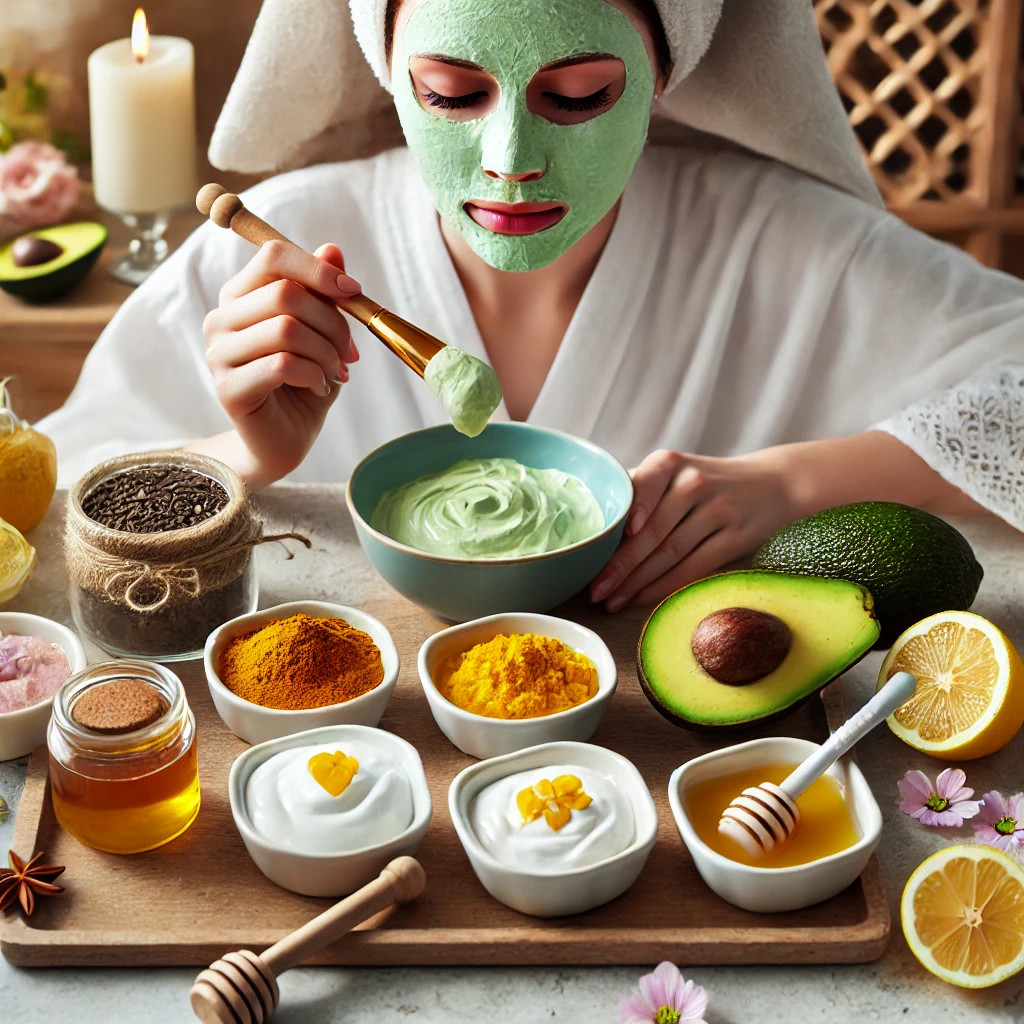
Here are a few recipes to try:
- For Glowing Skin: Mix 2 tablespoons of yogurt with 1 tablespoon of honey. Apply, leave for 15 minutes, and rinse off for radiant skin.
- For Acne-Prone Skin: Combine 1 teaspoon of turmeric, 2 teaspoons of honey, and a squeeze of lemon. This mask reduces inflammation and lightens scars.
- For Dry Skin: Mash half an avocado and mix it with 1 tablespoon of olive oil. This deeply hydrates parched skin.
Making your own face masks is like crafting a custom recipe for your skin’s unique needs.
6. Cleansing the Natural Way
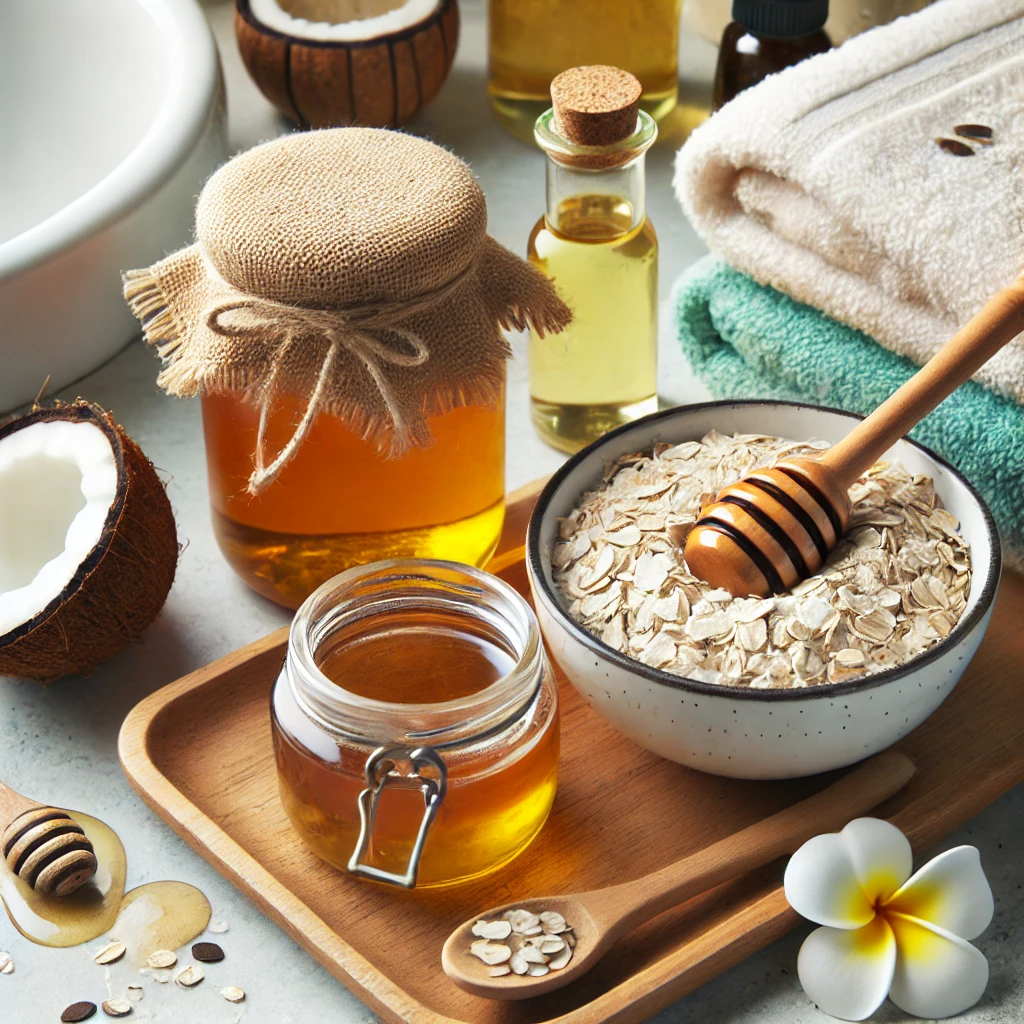
Cleansing is the foundation of any skincare routine, but harsh cleansers can strip your skin of its natural oils, leaving it dry and irritated. Natural cleansers provide a gentle yet effective solution.
- Honey: Its antibacterial properties make it a perfect natural cleanser, especially for acne-prone skin.
- Coconut Oil: A versatile option, coconut oil dissolves makeup and impurities while nourishing the skin.
- Oatmeal: Mix ground oatmeal with a little water to create a soothing cleanser for sensitive skin.
Cleansing naturally is like giving your skin a fresh start without the chemical baggage.
7. Importance of Sunscreen
Sunscreen is your skin’s best friend, protecting it from harmful UV rays that cause premature aging, sunburn, and even skin cancer. However, many commercial sunscreens contain synthetic ingredients that can irritate sensitive skin.
Natural sunscreens use ingredients like zinc oxide and titanium dioxide, which sit on the surface of your skin and reflect UV rays rather than being absorbed. These options are gentler and safer for both your skin and the environment.
If you’re looking for a DIY option, try combining zinc oxide powder with coconut oil and shea butter. Remember, no matter the weather, sunscreen is a must-have for healthy skin!

8. Natural Remedies for Acne
Acne is one of the most common skin concerns, but nature offers powerful solutions to tackle it effectively without harsh chemicals. The goal is to reduce inflammation, control bacteria, and balance oil production.
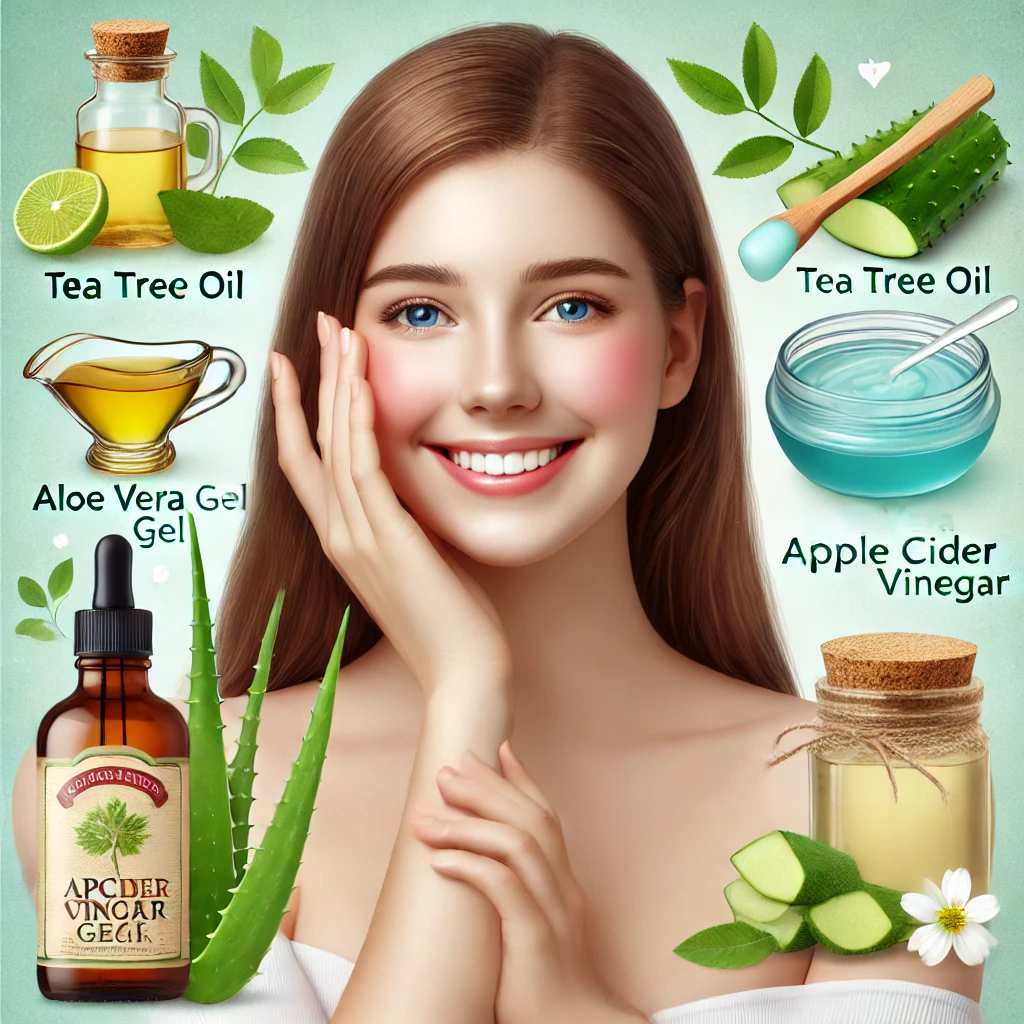
- Tea Tree Oil: This natural antiseptic kills acne-causing bacteria. Dilute it with a carrier oil like jojoba oil before applying.
- Aloe Vera: Known for its soothing properties, aloe vera helps calm irritated skin and reduces redness.
- Apple Cider Vinegar: Rich in natural acids, it balances your skin’s pH and exfoliates gently. Mix one part vinegar with three parts water and use as a toner.
- Honey: Its antibacterial and anti-inflammatory properties make it perfect for calming breakouts.
Think of these remedies as your all-natural toolkit for keeping acne at bay.
9. Exfoliation: Gentle and Effective
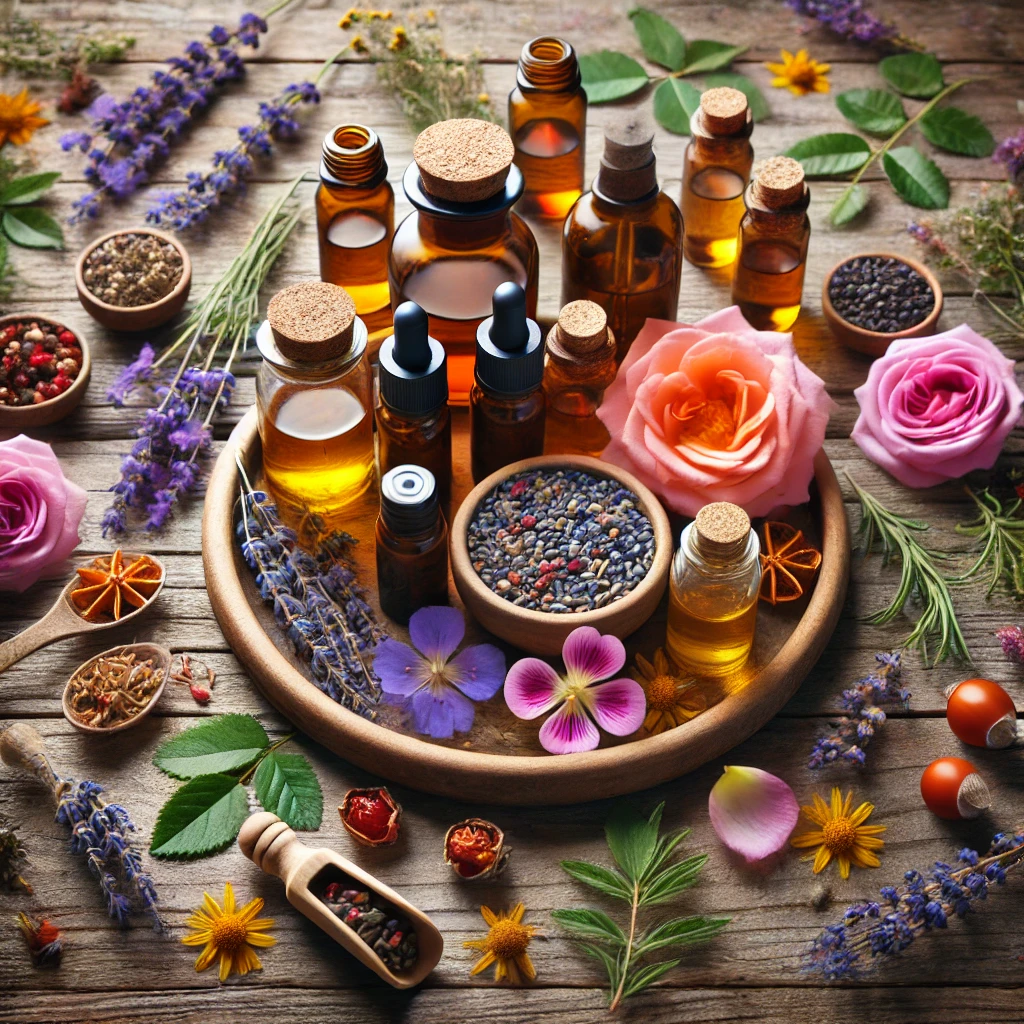
Exfoliation removes dead skin cells, helping your skin glow and improving the absorption of other products. However, it’s crucial to exfoliate gently, as overdoing it can damage your skin.
- Sugar Scrubs: Combine sugar and olive oil to create a gentle scrub that buffs away dead skin while moisturizing.
- Oatmeal Paste: Perfect for sensitive skin, ground oatmeal mixed with water provides a mild exfoliation.
- Coffee Grounds: Reuse coffee grounds as an exfoliant for smoother skin and improved circulation.
Imagine exfoliation as sweeping the floor of your skin—keeping it clear and fresh without causing scratches.
10. The Power of Essential Oils
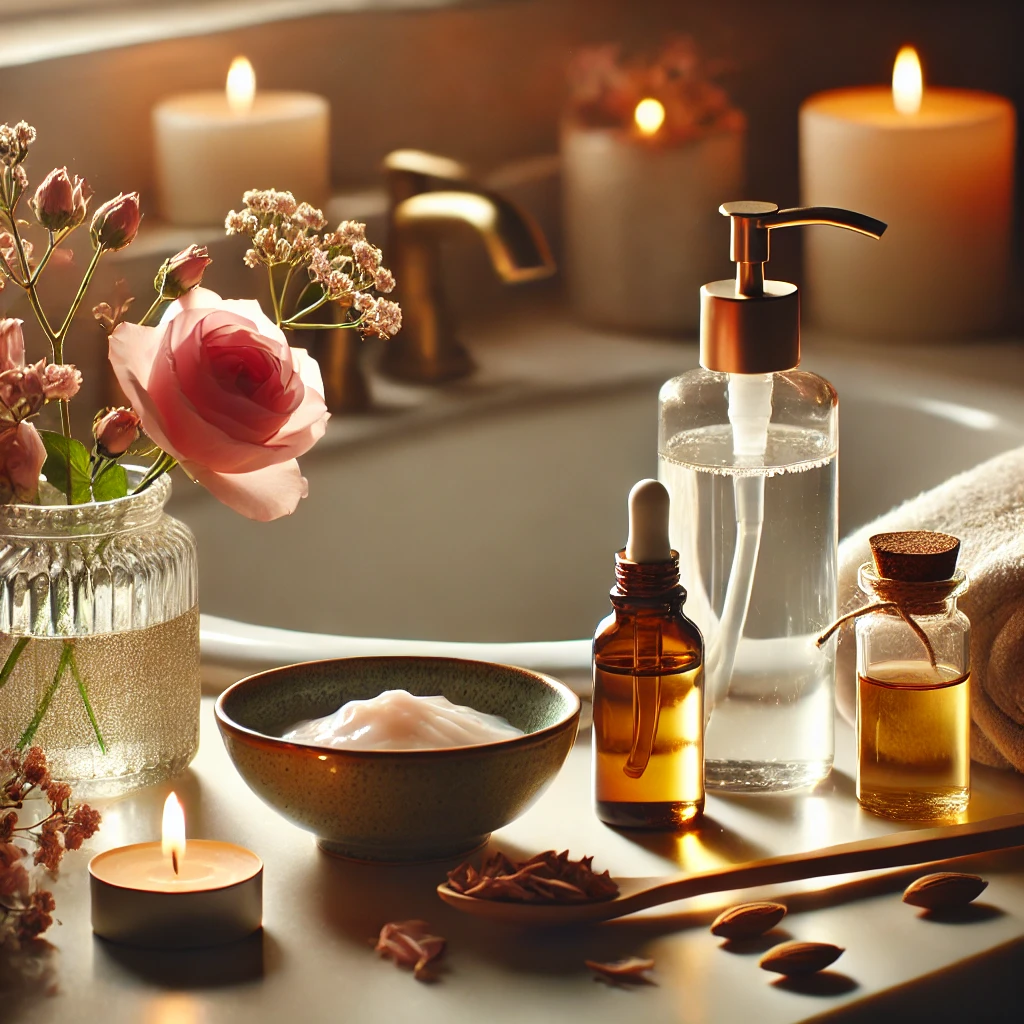
Essential oils are concentrated plant extracts that can work wonders for your skin when used correctly. They should always be diluted with a carrier oil to prevent irritation.
- Lavender Oil: Soothes and calms irritated or inflamed skin.
- Rosehip Oil: Packed with vitamins and antioxidants, it brightens the skin and reduces fine lines.
- Tea Tree Oil: A go-to for acne-prone skin due to its antibacterial properties.
- Geranium Oil: Helps balance oil production and improves skin elasticity.
Essential oils are like nature’s little potions—powerful, versatile, and incredibly effective.
11. Evening Skincare Routine
Nighttime is when your skin repairs and regenerates, making an evening routine essential for maintaining healthy skin. Here’s a simple natural routine to follow:
- Cleanse: Remove makeup and impurities with coconut oil or honey.
- Tone: Use a natural toner like rose water to balance your skin’s pH.
- Moisturize: Apply a nourishing oil such as argan oil or a cream with shea butter.
- Special Treatments: Dab tea tree oil on breakouts or apply aloe vera to soothe your skin.
Think of your evening skincare routine as tucking your skin in for a good night’s rest.
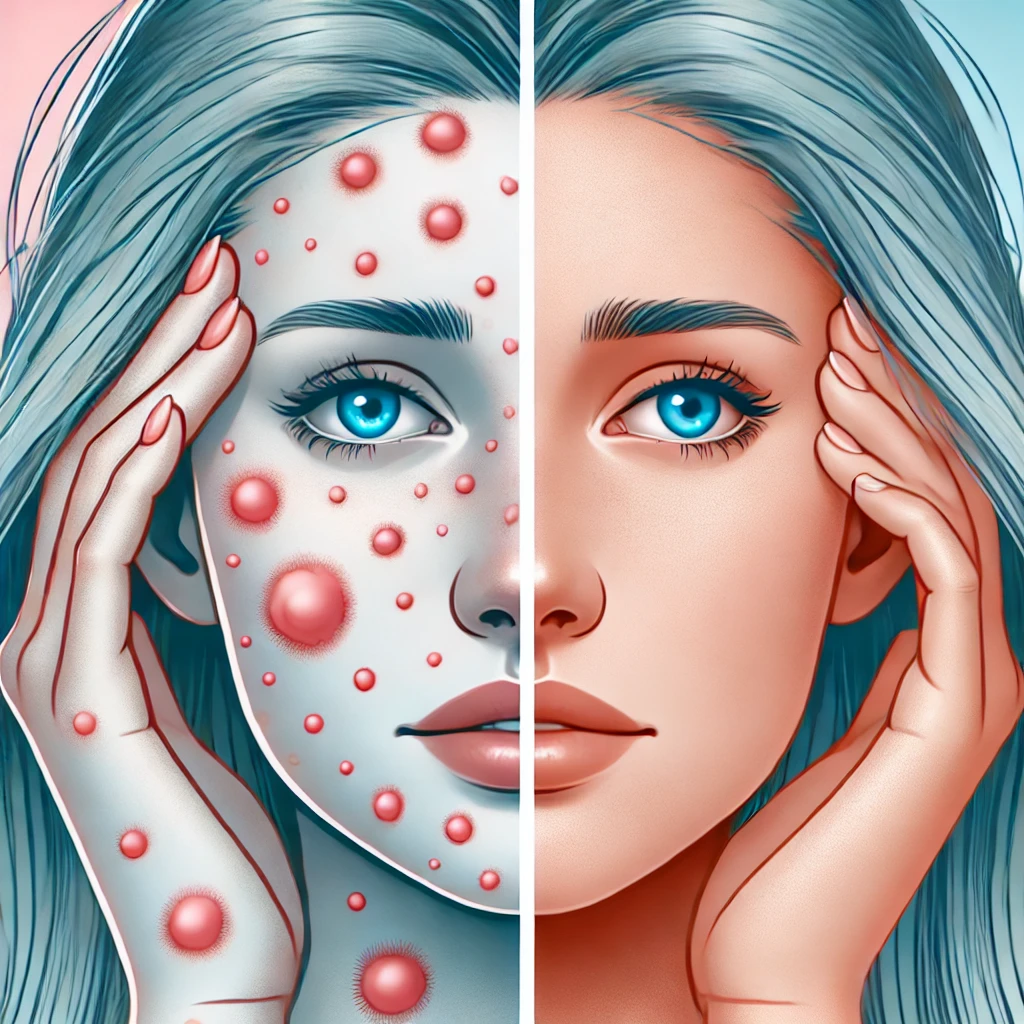
12. Stress and Skincare Connection

Have you ever noticed how your skin acts up during stressful periods? Stress triggers the release of cortisol, a hormone that can lead to breakouts, redness, and even premature aging. To keep your skin calm, it’s essential to manage stress effectively.
- Meditation: A few minutes of mindfulness daily can reduce stress and improve overall health.
- Exercise: Physical activity improves circulation, delivering oxygen and nutrients to your skin.
- Skincare as Self-Care: Treating your skincare routine as a ritual can also help you unwind.
Think of stress management as skincare for your soul—it works from the inside out.
13. Sleep: The Ultimate Skin Healer

Beauty sleep isn’t a myth—it’s a scientific fact. Your body repairs itself during sleep, and your skin is no exception. Poor sleep shows up as dark circles, puffiness, and dullness.
- Aim for 7-9 hours of sleep each night to allow your skin to regenerate.
- Use a silk or satin pillowcase to reduce friction and prevent fine lines.
- Hydrate your skin before bed with a nourishing moisturizer or natural oil.
Sleep is your skin’s best friend, working like a reset button every night.
14. Skincare Myths Busted
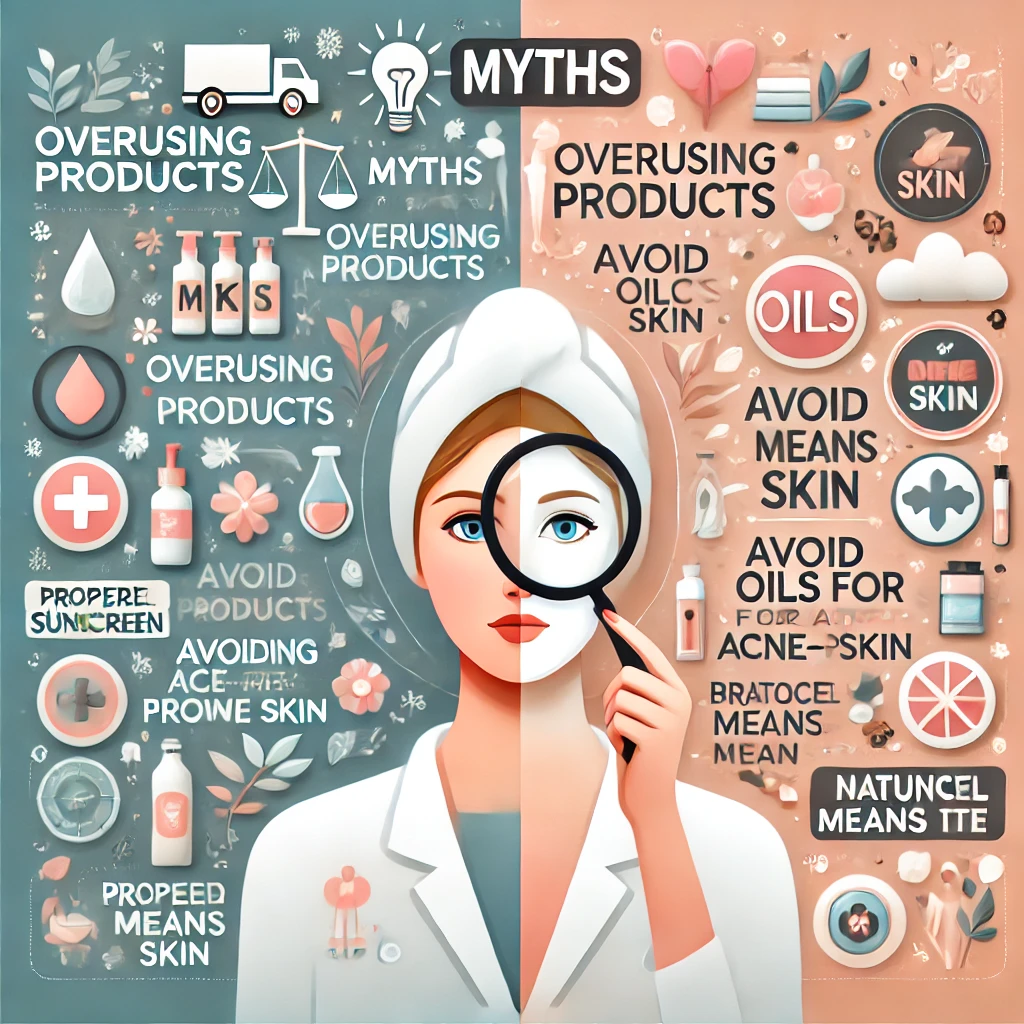
When it comes to skincare, misinformation abounds. Let’s clear up some of the most common myths:
- Myth: Natural products aren’t as effective as chemical ones.
Truth: Many natural ingredients, like aloe vera and tea tree oil, have scientifically proven benefits. - Myth: Oily skin doesn’t need moisturizer.
Truth: All skin types need hydration. For oily skin, use lightweight moisturizers like aloe vera gel. - Myth: You should exfoliate daily for glowing skin.
Truth: Over-exfoliating can harm your skin. Stick to 1-3 times a week, depending on your skin type.
By debunking these myths, you’ll feel more confident in choosing a skincare routine that truly works.
15. Long-Term Benefits of Natural Skincare for Healthy, Radiant, and Glowing Skin

Embracing natural skincare isn’t just about quick fixes—it’s a lifestyle that provides lasting results for healthy skin. Unlike synthetic products that may offer temporary benefits, natural skincare nourishes your skin over time, enhancing its natural beauty and resilience.
Here are five long-term benefits of following a natural skincare routine:
- Healthier Skin Barrier: Natural ingredients like aloe vera and shea butter strengthen your skin’s protective barrier, shielding it from pollutants and irritation.
- Radiant Complexion: Consistent use of natural remedies such as turmeric or honey boosts your skin’s glow, giving you that much-desired radiant complexion.
- Fewer Side Effects: Since natural products avoid harsh chemicals, you’re less likely to experience allergic reactions, redness, or dryness.
- Slower Aging Process: Antioxidant-rich ingredients like green tea and rosehip oil reduce wrinkles and promote elasticity for more youthful-looking skin.
- Sustainable and Eco-Friendly Beauty: Choosing natural skincare products reduces your ecological footprint while caring for your skin.
Over time, natural skincare transforms your routine into an investment in glowing, radiant skin that stands the test of time. With a commitment to natural products, you’re ensuring healthier skin for years to come.
Conclusion
Embracing natural skincare tips is more than a trend—it’s a lifestyle choice that benefits your skin and the environment. With patience and consistency, nature can truly work wonders for your skin. Ready to let your natural beauty shine?
FAQs
1. Can natural skincare replace commercial products?
Yes, natural skincare can be just as effective, if not more, with fewer risks of side effects.
2. How long does it take to see results from natural skincare?
It varies by individual, but most people notice improvements within a few weeks of consistent use.
3. Are natural skincare tips suitable for all skin types?
Yes, you can customize natural skincare to suit any skin type by choosing the right ingredients.
4. What’s the best natural remedy for acne?
Tea tree oil and aloe vera are top choices for treating acne naturally.
5. How can I make a natural sunscreen at home?
You can mix zinc oxide with coconut oil and shea butter for an effective natural sunscreen.
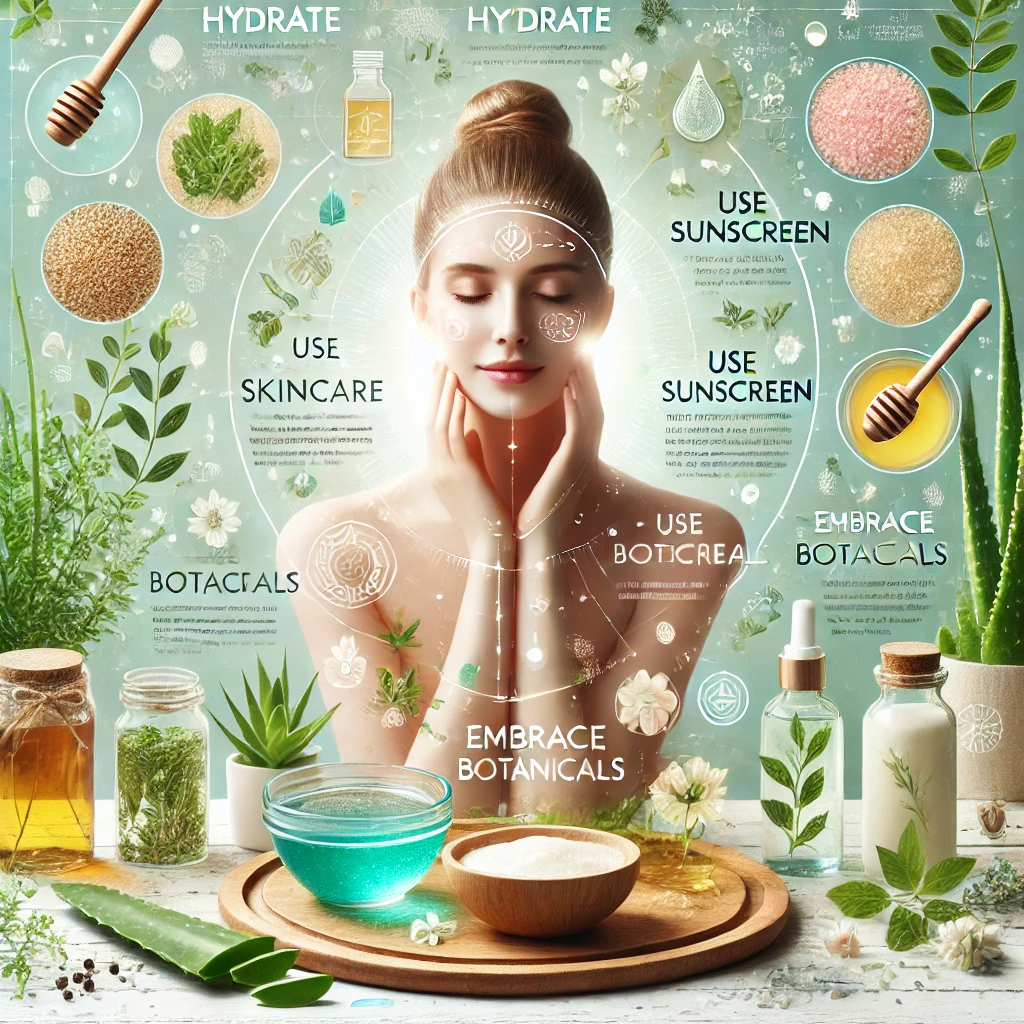






7 thoughts on “Natural Skincare Tips: Your Ultimate Guide to Radiant Skin”